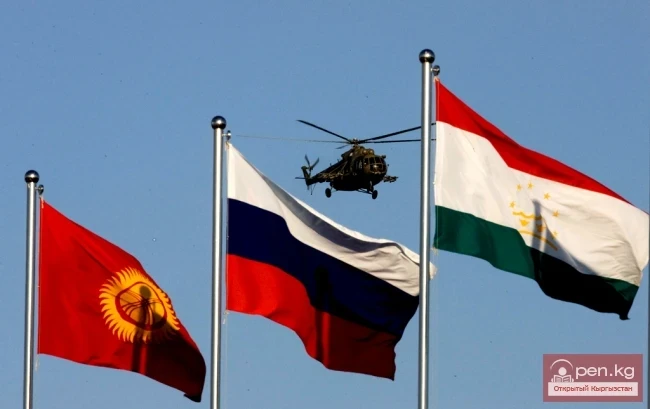Kyrgyzstan — Central Asia
Kyrgyzstan borders Kazakhstan, Uzbekistan, and Tajikistan — friendly states that are close in cultural-historical, ethnic, and confessional terms, and is also located in the same region as another Central Asian state — Turkmenistan. Kyrgyzstan actively participates in various integration processes, in which other Central Asian countries are also involved to varying degrees. Currently, the Central Asian countries are addressing unresolved issues from the past that affect various aspects of interstate relations. These include border, demographic, interethnic, religious, environmental, transport-communication issues, and land use matters.
Unfavorable factors for the region's development include its landlocked position, lack of direct access to global communications, underdeveloped transport and communication infrastructure, and remoteness from centers of economic and political influence.
A relatively favorable factor for Kyrgyzstan is its rich natural-energy and raw material resources. At the same time, there are ongoing anthropogenic environmental threats, particularly from the tailings of uranium ores left over from past practices, which pose dangers to the entire region; there is a high probability of landslides, earthquakes, and other types of natural disasters and catastrophes.
Recognizing the common interests in economic development, the presidents of Kazakhstan, Kyrgyzstan, and Uzbekistan signed a Treaty on the Creation of a Unified Economic Space on April 30, 1994. In 1998, the Republic of Tajikistan became a full participant in the Treaty. Soon, the regional association of states participating in the Treaty was named the Central Asian Economic Community (CAEC).
The majority of more than 250 documents adopted within the framework of the CAEC were aimed at ensuring the legal, economic, and organizational conditions for the creation of a unified economic space.
On February 28, 2002, the Central Asian Economic Community was transformed into the Organization of Central Asian Cooperation (OCAC). Russia's accession to the OCAC on October 18, 2004, marked an important milestone in the organization's activities. Kyrgyzstan believes that Russia's active participation in the OCAC will undoubtedly contribute to further strengthening multifaceted cooperation among member states in all areas and will serve as a catalyst for integration processes in the region.
It is particularly noteworthy that the states of the Central Asian region are striving for economic integration with Europe and Asia. In March 1998, the presidents of the Cooperation states and the executive secretaries of the UN Economic Commission for Europe, and the UN Economic and Social Commission for Asia and the Pacific signed the Tashkent Declaration on the Special Program of the UN for the Development of the Economies of the Five Central Asian States (SPECA) and agreed to begin its implementation. The SPECA program initially covered areas of cooperation in developing transport infrastructure and simplifying the crossing of state borders, utilizing the region's energy and water resources, attracting foreign investment, delivering hydrocarbon raw materials via pipelines to global markets, and restructuring industries to create internationally competitive industrial enterprises.
The state of relations with neighboring countries is a crucial factor determining security in the region and in Kyrgyzstan, the normal functioning of the country's economy, the prospects for implementing reforms, and the possibility of accessing global and continental communication infrastructure. This necessitates maintaining and developing friendly relations with neighboring states based on mutual understanding, mutually beneficial cooperation, and finding a balance of interests. In this regard, a strategic task is to deepen regional economic integration (within the framework of OCAC and other structures) based on balanced interdependence and the formation of mutually beneficial relationships for the use of natural resources of the countries in the region.
To develop interstate relations with countries in the region, primarily bilateral and regional mechanisms can be used, as well as multilateral security structures at the regional and global levels (CSTO, SCO, CIS, OSCE, OIC, UN).
Kyrgyzstan — OCAC
Recognizing the common interests in economic development, the presidents of Kazakhstan, Kyrgyzstan, and Uzbekistan signed a Treaty on the Creation of a Unified Economic Space on April 30, 1994. Membership in this international organization allowed Kyrgyzstan to find its niche in regional integration processes, the main goals of which corresponded to its national interests:
• rational use of water resources and ensuring environmental safety in the region;
• trade cooperation;
• creation of a unified market for agricultural products;
• effective use of mineral raw materials and fuel-energy resources;
• production cooperation aimed at producing competitive products of high readiness;
• creation of a unified transport and communication system with access to external markets;
• development of the banking system;
• development of market infrastructure;
• creation of conditions for entrepreneurship development;
• scientific and technical cooperation.
Read also:
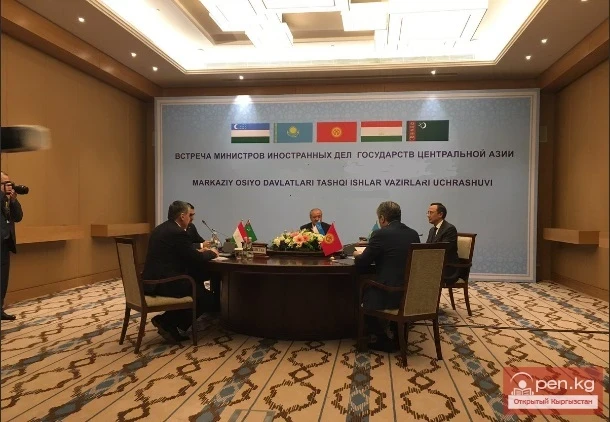
Meeting of the Foreign Ministers of Central Asia
Foreign Ministers of Central Asia Discussed Security Issues in the Region The foreign ministers of...

Kyrgyzstan — China
On December 27, 1991, the Government of the People's Republic of China recognized the...
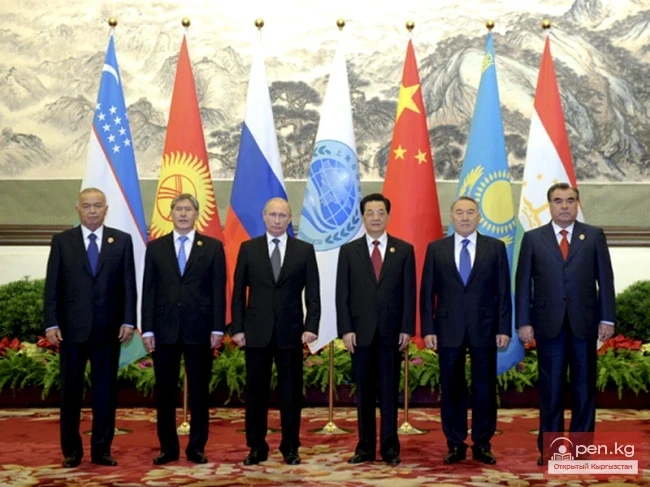
The Foreign Policy of Sovereign Kyrgyzstan
Sovereign Kyrgyzstan is an equal member of the international community. One of the most important...
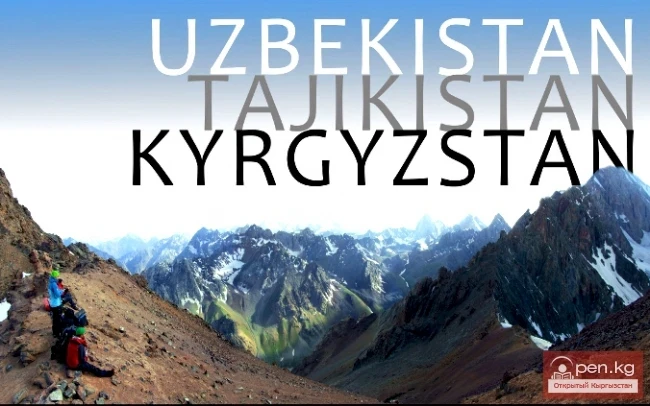
Kyrgyzstan — Uzbekistan — Tajikistan
Kyrgyzstan — Uzbekistan...

The Territory of the Kyrgyz in the USSR (1917-1991)
Administrative-territorial division of the Kyrgyz SSR as of January 1, 1972....
Kulubaev: Kyrgyzstan is interested in attracting American investments
Negotiations between the Foreign Minister and the American Ambassador...

Express Reference on Kyrgyzstan
The Kyrgyz Republic is a mountainous country (average altitude 2750 m above sea level), located in...
EABR forecasts the construction of 395,000 sq.m. of warehouse space in Kyrgyzstan in the coming years
- On October 23, analysts from the Eurasian Development Bank (EDB) presented their findings on the...
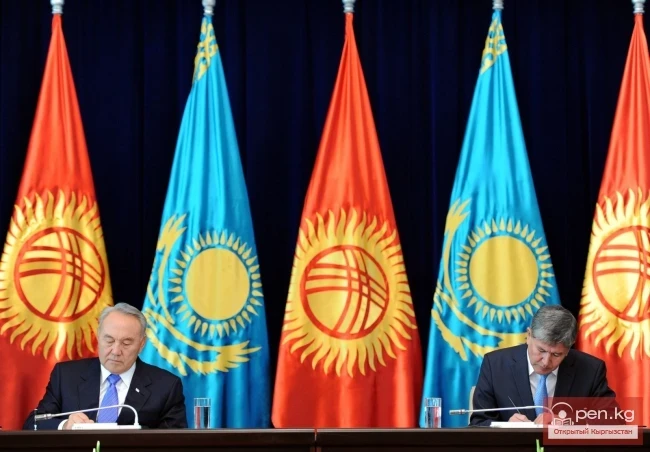
Kyrgyzstan — Kazakhstan
Kyrgyzstan borders one of the most developed regions of Kazakhstan — Almaty. This proximity...
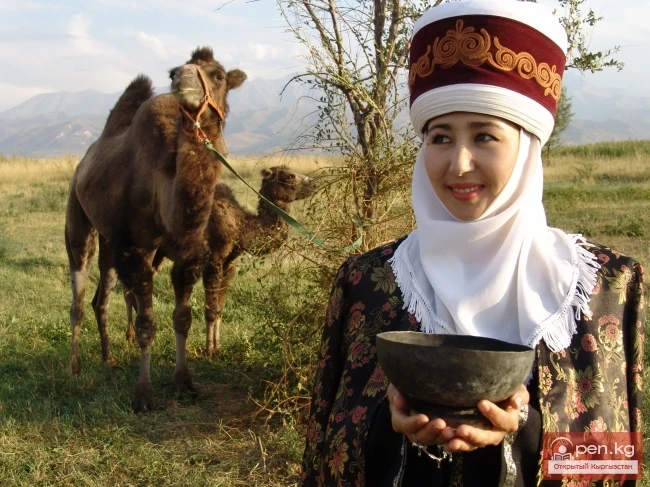
Forecast Expectations for the Factors of the Strategic Matrix of Kyrgyzstan from 2005 to 2020
The main strategies that the leadership of Kyrgyzstan can implement during the forecast period...
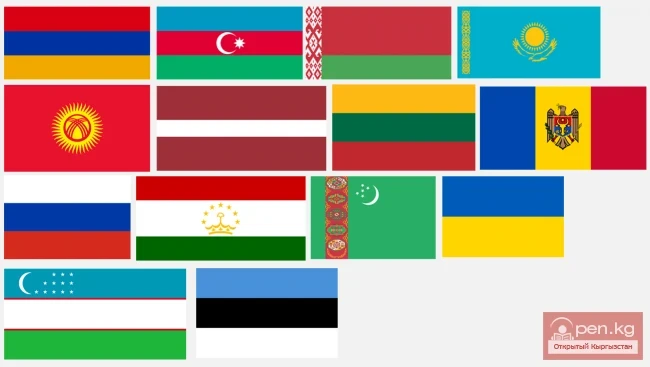
The Foreign Policy of Kyrgyzstan
Kyrgyzstan is a state in the Central Asian region, whose location has significant geopolitical and...

Vice Prime Ministers of Kyrgyzstan and Tajikistan to Discuss Border Issues
Vice Prime Ministers of Kyrgyzstan and Tajikistan to Discuss Border Issues Today, another joint...
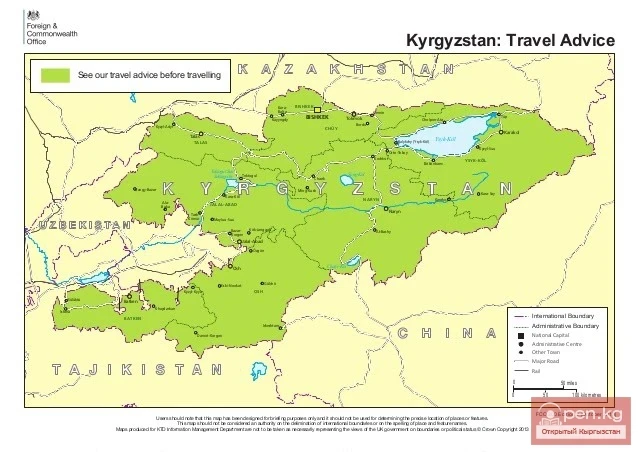
The British Foreign Office named Kyrgyzstan a safe country for travel.
The British publication Telegraph has prepared a world map indicating whether it is safe to travel...

Interim Results of John Kerry's Visit to Central Asia
U.S. Secretary of State John Kerry is concluding his Central Asian tour this week, having visited...

Kyrgyzstan — European Union
The development of relations between Kyrgyzstan and European countries opens the way for...
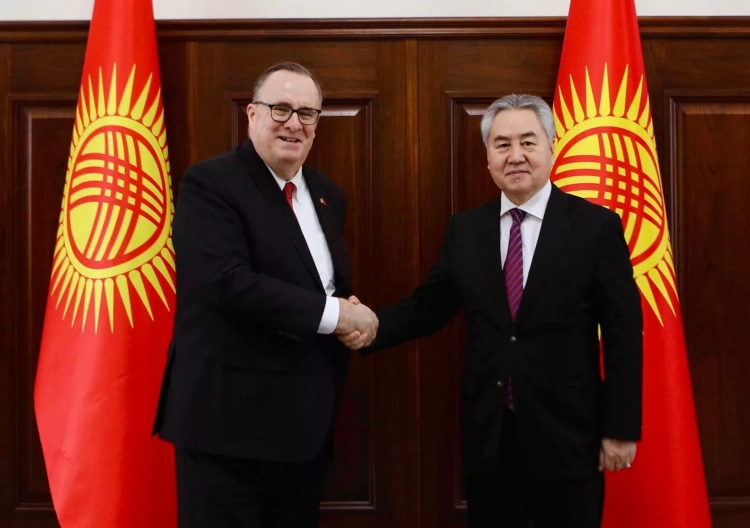
The Minister of Foreign Affairs of Kyrgyzstan and the U.S. Ambassador discussed economic cooperation and visa issues
Key issues regarding cooperation between Kyrgyzstan and the USA, as well as interaction within the...

Prime Minister of the Kyrgyz Republic Joomart Otorbaev met with Honorary Consuls of the Kyrgyz Republic abroad.
Today, October 22, Prime Minister of the Kyrgyz Republic Joomart Otorbaev held a meeting with the...
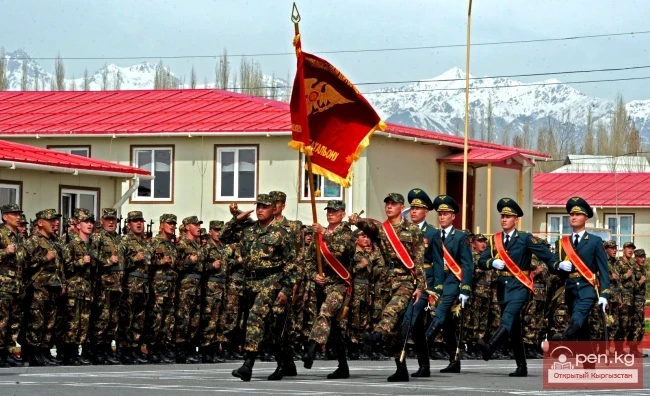
Foreign Policy Aspects of Ensuring the Military Security of the Kyrgyz Republic
The insufficiency of military means to ensure external security is something Kyrgyzstan tries to...
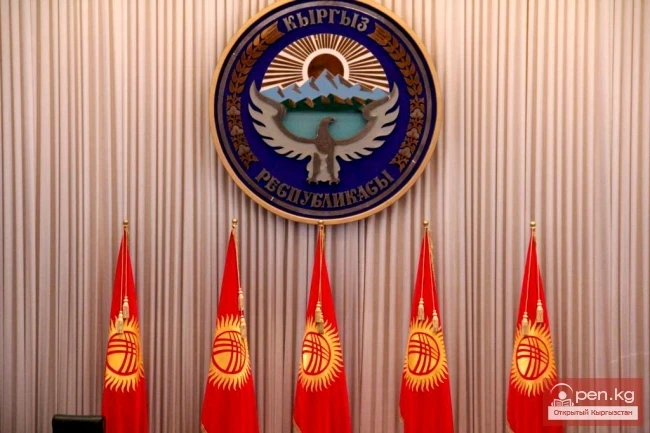
Kyrgyzstan - International Security Organizations
Kyrgyzstan — SCO...

In the Batken Region, there are 100 tourist sites.
There are 100 tourist sites in the Batken region. This was stated today by the plenipotentiary...
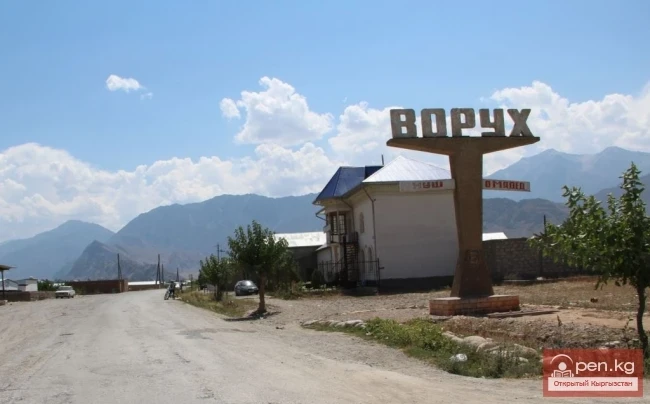
Kyrgyz-Tajik Border
Negotiations are underway regarding the delimitation of state borders between the governmental...
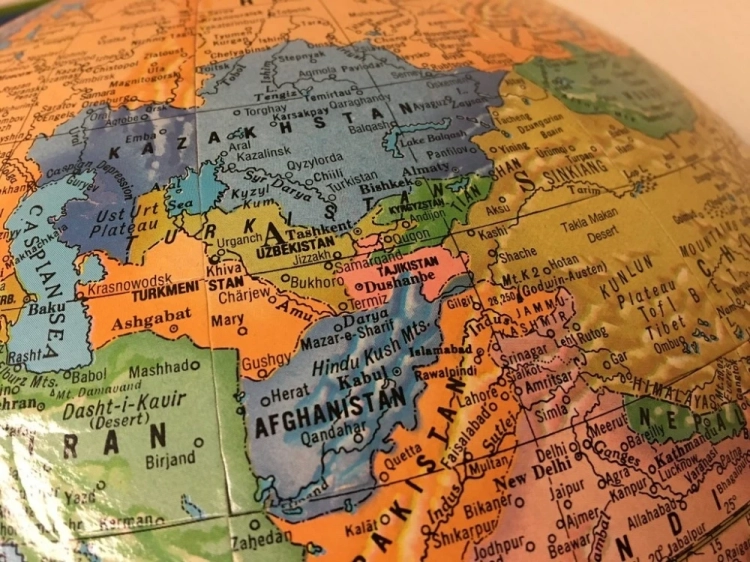
India and Central Asia: 6 Steps to New Cooperation
Central Asia has significant geo-economic potential for India due to its strategic location, which...
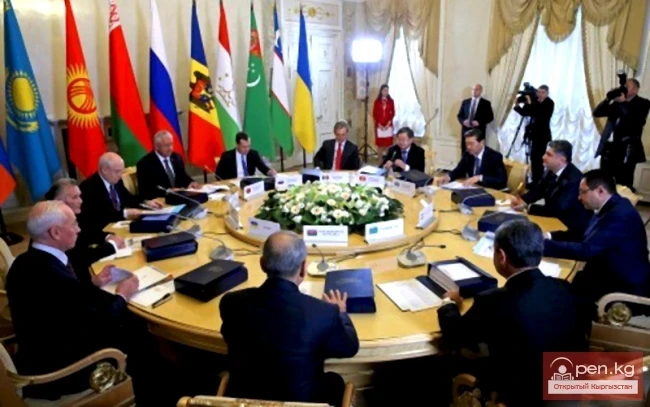
Kyrgyzstan — CIS — EAEU
Within the framework of the Commonwealth of Independent States, a priority direction for...
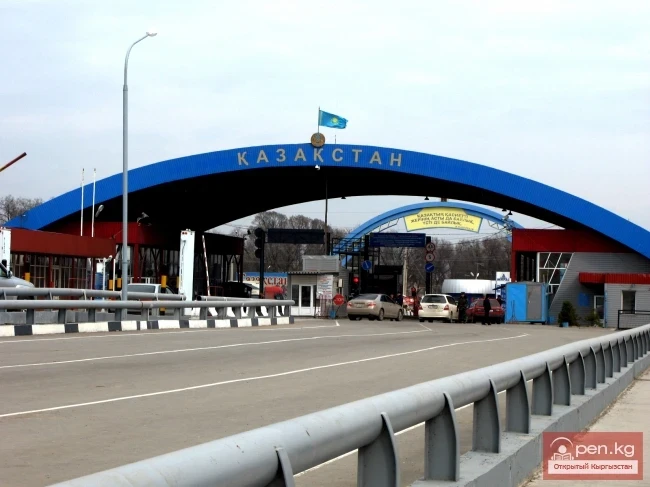
Kyrgyz-Kazakh Border
The administrative-territorial demarcation of the republics of the former USSR predetermined the...

Under the Chairmanship of the Heads of State, the 4th Meeting of the Supreme Intergovernmental Council of the Kyrgyz Republic and the Republic of Kazakhstan Took Place
On November 7, 2014, in the city of Astana, the 4th meeting of the Supreme Intergovernmental...
There is a structural shortage of quality warehouse real estate in the Eurasian region, - EDB
- The analysis of warehouse real estate in the Eurasian region was presented by EDB analysts on...

This is a record: "Altyn Alliance" has transferred over 10 billion soms in taxes to the Kyrgyzstan budget for the first time in just 9 months
Since the beginning of the development of the "Djeruy" deposit in 2015, "Alliance...
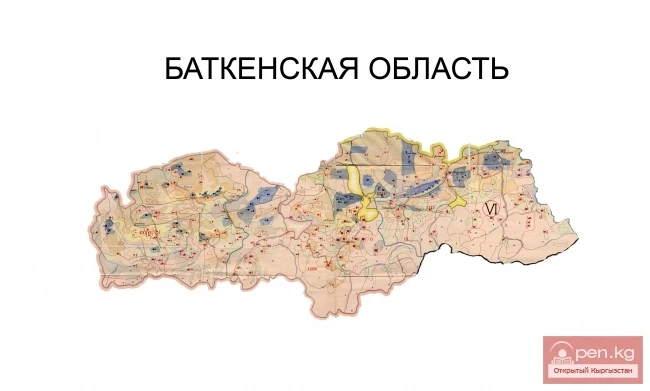
Batken Region
The Batken Region was established on October 12, 1999, from the Osh Region. It includes the...
In the Talas Region, more than thirty cases of death among children under 1 year old have been registered since the beginning of the year: What is the cause of 90% of them?
The regional board in Talas, attended by the leadership of the presidential representative office,...
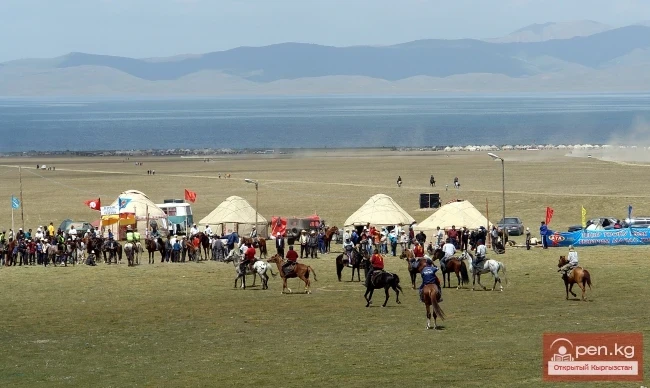
Kyrgyzstan has developed an alternative to the Olympic Games.
Kyrgyzstan has developed an alternative to the Olympic Games. These are the World Nomad Games,...
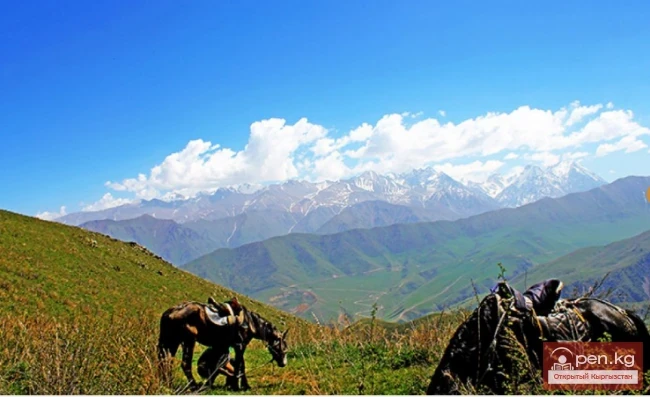
The "Least Attractive" Destination for Tourists in 2017 Became Kyrgyzstan
21st from the bottom: Kyrgyzstan ranked 115th in the Travel and Tourism Competitiveness Index The...

Kyrgyzstan Issues Warning Regarding Travel to Ebola-Affected Countries
On Friday, the Ministry of Foreign Affairs of Kyrgyzstan published recommendations for tourists,...
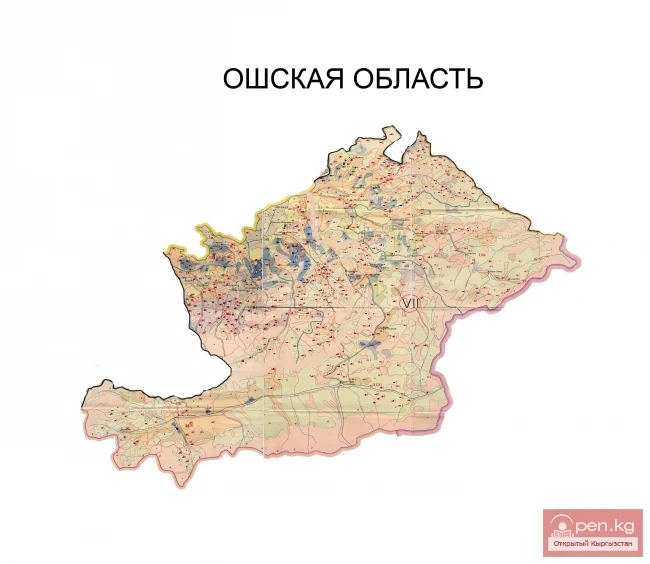
Osh Region
The Osh Region was established on November 21, 1939, replacing the former district. After numerous...
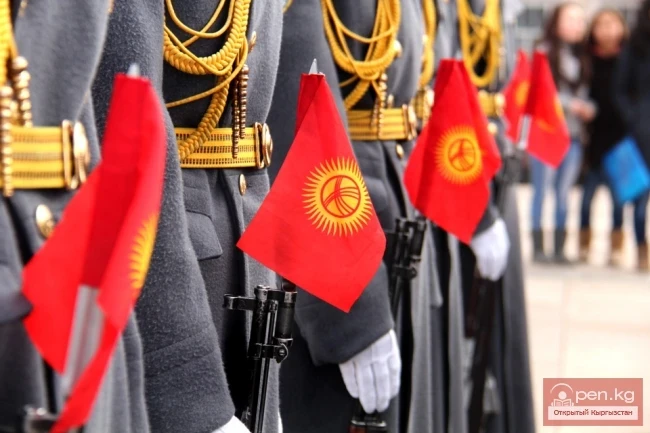
Independence of Kyrgyzstan: Economic Aspect
While celebrating the day of independence of Kyrgyzstan, we often do not think about the fact that...
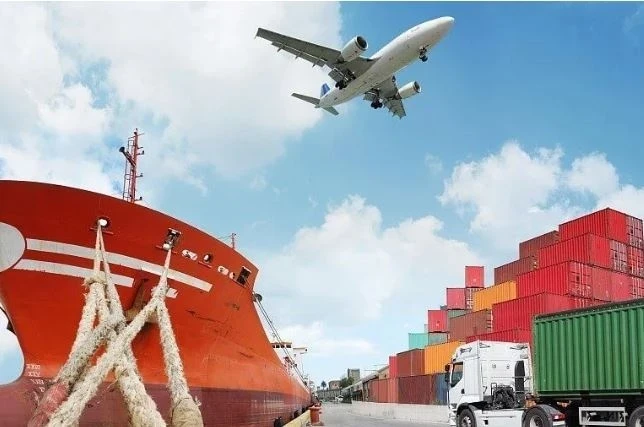
The Ministry of Transport of the Kyrgyz Republic commented on the statements of expert Andrei Belov
In his article, Belov pointed out that significant changes occurred in the freight transportation...
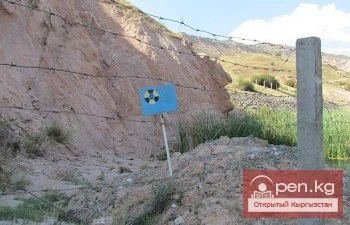
In the tailings storage facilities of Central Asia, there are 80 million tons of waste from uranium ore mining.
Approximately 80 million tons of uranium waste are located in the tailings of some countries in...
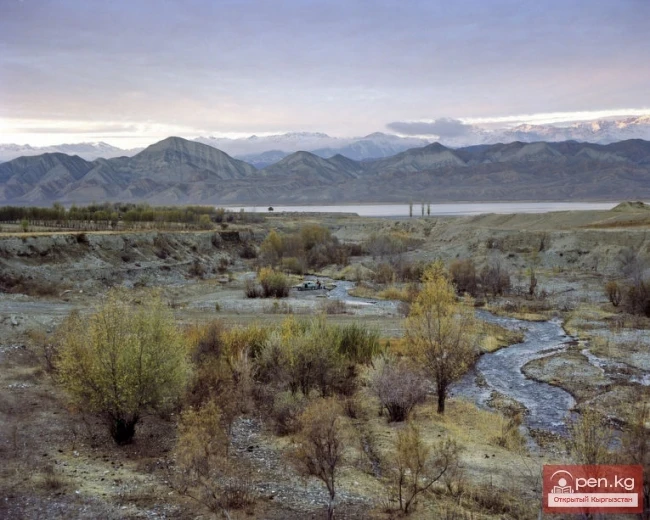
Meeting of the Interagency Commission on Water and Energy Issues.
Today, October 28, the first meeting of the Interdepartmental Commission on Water and Energy...
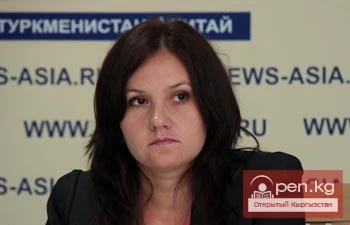
Tour of Central Asian Countries: A New "American-Japanese Approach" to the Region
Central Asia has once again found itself in the spotlight of leading regional and non-regional...
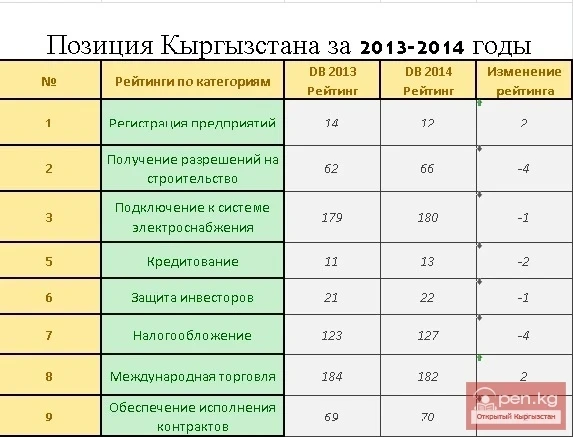
In the Doing Business ranking, Kyrgyzstan surpassed Turkey and China.
In the Doing Business-2014 country ranking, Kyrgyzstan took the 68th position, improving its...
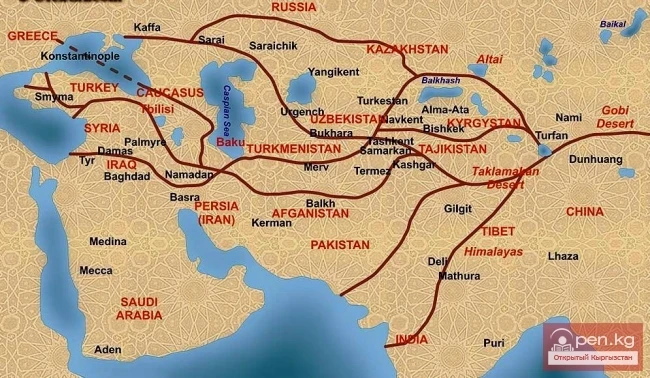
Kyrgyzstan Sets an Example of International Engagement
Confidently taking its place in the Customs Union on its own terms, Kyrgyzstan has embarked on the...
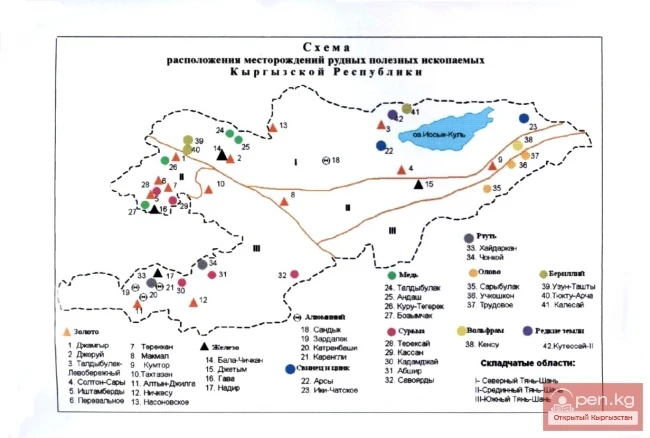
Hydrocarbon Resources
The territory of the republic has discovered deposits of coal, gas, and oil. Among them, coal...

Kyrgyzstan Achieved Benefits Upon Joining the Customs Union
The government of Kyrgyzstan has approved the "road map" project for joining the Customs...
Residents of Dostuk have begun to relocate to a new residential area. See what kind of houses have been built for them.
In the Batken region, the resettlement of residents whose lands will be transferred to Tajikistan...
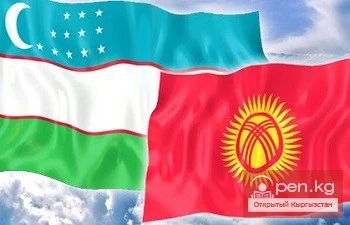
Kyrgyzstan Halved Trade with Uzbekistan
According to data from the Customs Service of Kyrgyzstan, in the first 7 months of 2015, the...
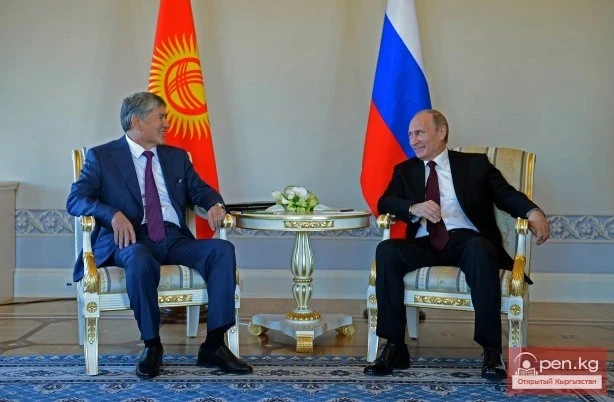
President Almazbek Atambayev met with President of Russia Vladimir Putin
Today, March 16, 2015, President of the Kyrgyz Republic Almazbek Atambayev met with President of...
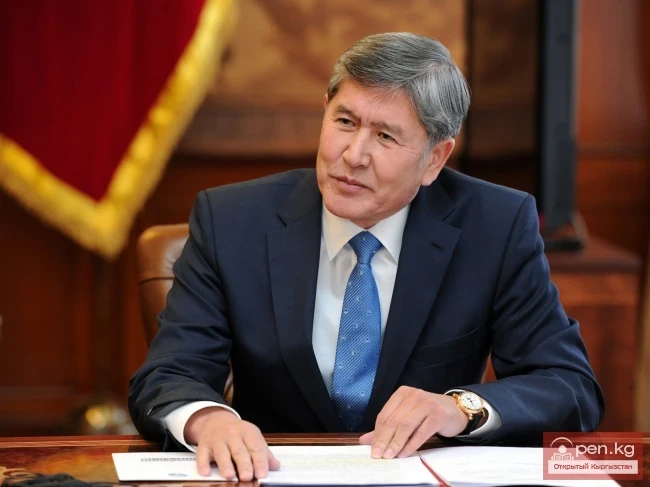
The President of Kyrgyzstan will make a state visit to Kazakhstan.
The President of Kyrgyzstan will make a state visit to Kazakhstan. This is reported by the media...

Kyrgyzstan Could Become the First Country in the Region with Free Satellite Internet
35 schools in Kyrgyzstan located in hard-to-reach mountainous areas are awaiting the OneWeb social...
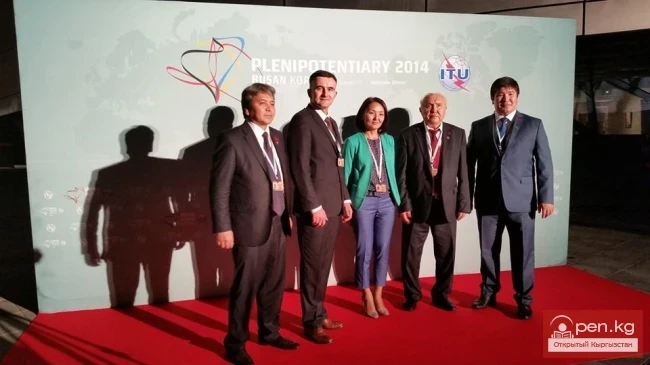
Kyrgyzstan has nominated its candidacy for a position in the Council of the International Telecommunication Union.
The Plenipotentiary Conference of the International Telecommunication Union in 2014 is taking...
